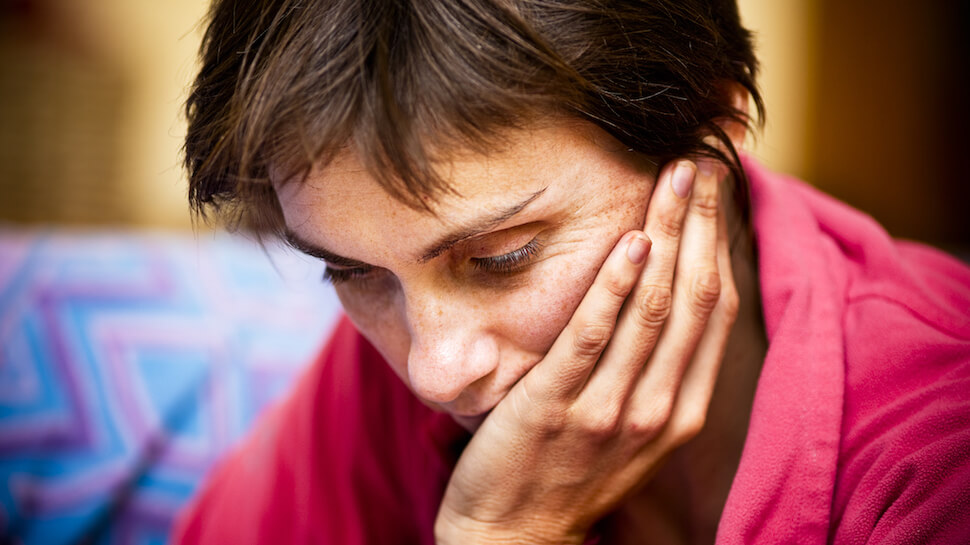
Am I Bipolar?
Bipolar disorder causes troubling mood swings from depression to mania, or a less severe form of mania called hypomania. It can be difficult to recognize the signs of this mental illness in oneself, but if you are worried about your moods, your depression, or things your loved ones have pointed out about your behaviors and attitudes, it is a good idea to seek out a professional evaluation. A good treatment plan can help stabilize moods, relieve depression, and provide long-term management of the condition.
What Is Bipolar Disorder?
Bipolar disorder is a type of mental illness called a mood disorder. Mood disorders cause abnormal and unhealthy patterns of thoughts, feelings, behaviors, and moods that do not match up with a person’s circumstances. Bipolar disorder is characterized by shifts in mood between depression and mania or hypomania. The mood swings can be severe, and they may occur several times a year or only occasionally.
There are a few different types of bipolar disorder, including bipolar I, which causes mood shifts between depression and mania, and bipolar II, which causes shifts between depression and hypomania, a less severe form of a manic episode. If you think you may be struggling with bipolar disorder, there are some characteristic signs and symptoms you should watch out for. Keep in mind, though, that it can be very difficult to recognize a lot of the signs when you are in the middle of an episode. Let your loved ones help you and listen to them if they express concerns about your moods and behaviors. And above all, be sure to get an evaluation from a mental health professional.
Signs of Bipolar Depression
Bipolar depression is very similar to major depression. The basic symptoms and signs are the same, but with bipolar depression you may be more likely to feel irritable, guilty, and restless. A depressive episode of bipolar disorder is also more likely than major depression to cause psychosis, or a break with reality. The following signs may indicate you are struggling through an episode of depression, especially if you have five or more of these and if they are severe enough to impair your life in some way:
- You feel depressed, sad, and hopeless most of the day, most days for two weeks or longer.
- You have lost interest in activities you used to like and find it difficult to experience pleasure at all.
- You have either lost or gained weight without meaning to, usually because you have started eating more or you have lost interest in eating.
- You can’t sleep well, or you sleep too much, finding it very difficult to get out of bed.
- You just can’t summon the energy to do the things you need to do.
- Your movements have either slowed way down, or you feel agitated and restless.
- You often feel guilty or ashamed; you feel as if you are worthless or unworthy of the people around you.
- You are having a hard time concentrating or making decisions about even simple things.
- You have thought a lot about death and maybe even contemplated suicide.
Signs of Mania or Hypomania
Manic episodes last for a week or more and are the opposite of depressive episodes in that they cause an unusually elevated mood rather than an unusually depressed mood. Mania is more extreme than a good mood that you might experience because you have just come out of an episode of depression. It is unhealthy and can have consequences that are just as severe and damaging as those caused by depression. Hypomania is an episode with the same symptoms as mania, but it is less intense. If you have three or four of these signs, you may be experiencing mania or hypomania:
- You feel unusually upbeat and positive, but also jumpy and on edge.
- You have a lot of energy, much more than normal, and you have an urge to get a lot done. You may also feel agitated as well as energetic.
- You sleep less than normal but still feel like you have a lot of energy.
- You feel extremely self-confident, as if you can do anything, even things you have never done before or that you have no expertise in.
- Your thoughts are racing through your mind, jumping rapidly from one to the next.
- You are talking a lot, whether other people are listening or not.
- You get distracted very easily.
- You keep doing things that are pleasurable or fun but that get you into trouble. This could be racing down the freeway much too fast, gambling a lot of money on online poker games, or shopping and spending much more than you can afford.
You May Have Mixed Episodes
Some people with bipolar disorder experience depressive moods with some signs of mania, or manic episodes with some symptoms of depression. This can understandably be confusing. You may feel depressed and worthless but also jumpy and restless, wanting to do more. Or, you might feel euphoric and that you can take on the world but also think about suicide and lack energy to do anything. If you experience depression with a few signs of mania, you may be diagnosed with major depression instead of bipolar disorder.
Is it Bipolar Disorder or Depression?
Bipolar disorder and major depression are both mood disorders, and they have a lot in common. It may be hard to tell if you are struggling with one or the other. The depressive episodes you may experience with bipolar disorder can look exactly like an episode of major depression. The real distinction is if you have ever had a manic or hypomanic episode. If you had even just one episode of mania or hypomania, you will be diagnosed with bipolar disorder rather than major depression.
Sometimes it’s hard to tell if what you have experienced between bouts of depression was mania or hypomania or if it was simply relief and a sense of well-being after recovering from such a low mood. In fact, you may not be able to tell. You may need the perspective of those close to you, along with a mental health professional, to determine if your elevated mood is mania or just a normal good mood.
The distinction between the two is that the elevated mood caused by mania is different from and more extreme than a normal mood. Even if you understand this difference, you still may have a hard time distinguishing between a healthy mood and mania or hypomania. It can be helpful to listen to what those close to you say about your mood and your behaviors.
Bipolar Disorder Can Also Cause Psychosis
Episodes of depression or mania both have the potential to cause psychotic symptoms, or to make you feel as if you can’t figure out what is real and what is not real. It happens more often with mania, but both types of mood can trigger delusions, make you feel paranoid or suspicious of other people, or cause you to have auditory or visual hallucinations. Psychosis can feel very frightening, and if you experience it you may not know whom you can trust. During these times it is important to listen to your closest family members or friends, who may be better able to tell that you are struggling. Reach out to these people to help you get professional assistance.
Complications of Bipolar Disorder
If you have bipolar disorder, the impact probably goes beyond the actual symptoms of the condition. It reaches into all areas of your life to cause unexpected symptoms and complications. For instance, you may struggle to keep up with the duties of your job or your school work, which can cause more complications, like unemployment or failing classes.
Bipolar disorder can also affect sex drive, energy levels, and physical health. Studies have found that bipolar disorder is linked with higher rates of asthma, type 2 diabetes, thyroid disease, hypertension, and other medical illnesses. Why this connection exists is not fully understood.
You may also have a greater predisposition for other mental illnesses; anxiety disorder is commonly linked with bipolar disorder. Other potential complications or consequences of living with bipolar disorder include substance abuse problems, suicide, financial difficulties, difficult or broken relationships, and physical injuries and other consequences of risky decisions made during a manic episode.
If you have any concerns about your mental health, the best thing you can do is to reach out to someone you trust to support you in seeking a professional evaluation. You may be able to recognize many of the signs of bipolar disorder, but only a mental health professional can give you an accurate diagnosis and develop a bipolar disorder treatment plan that will help you feel better.


